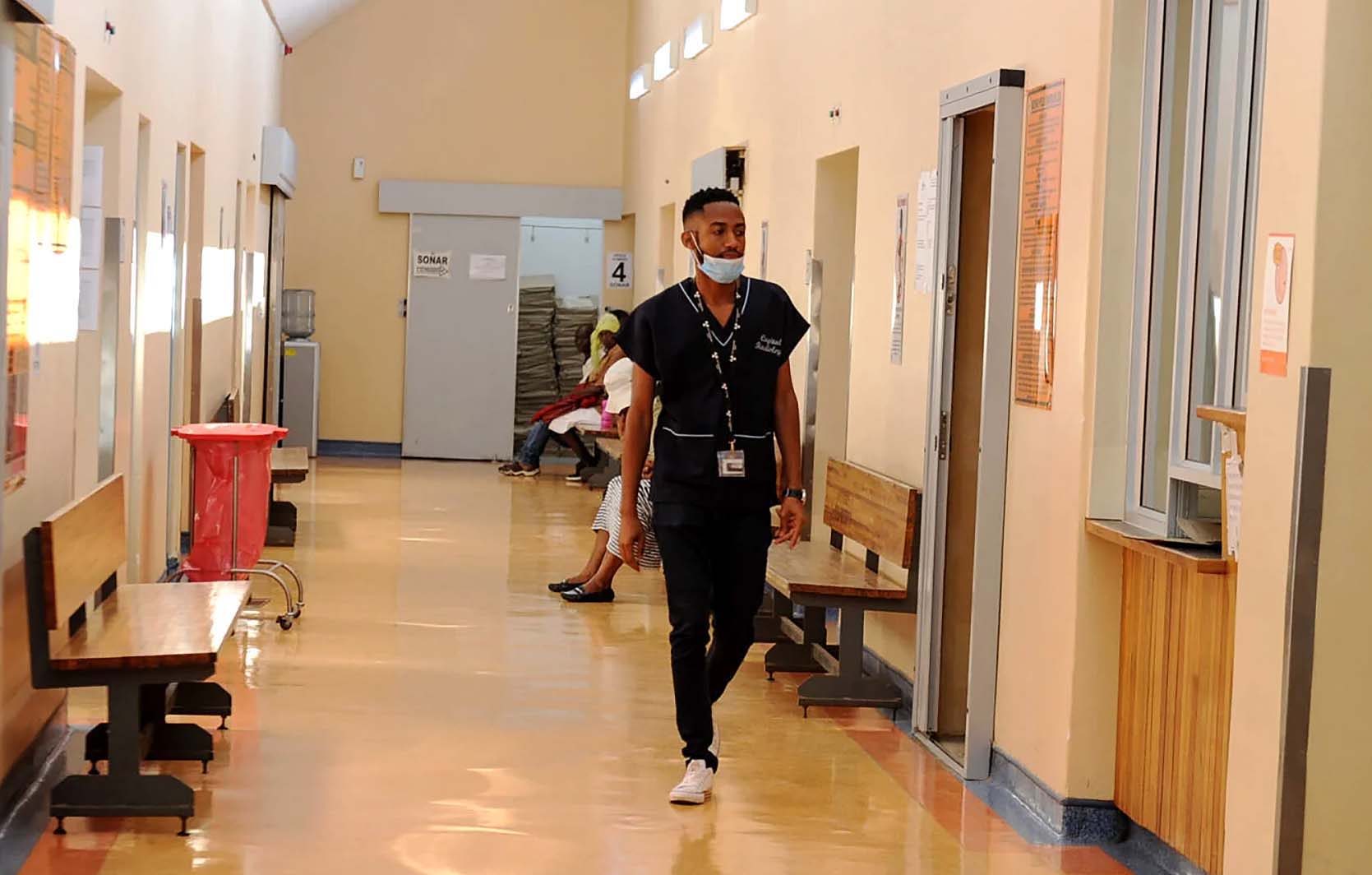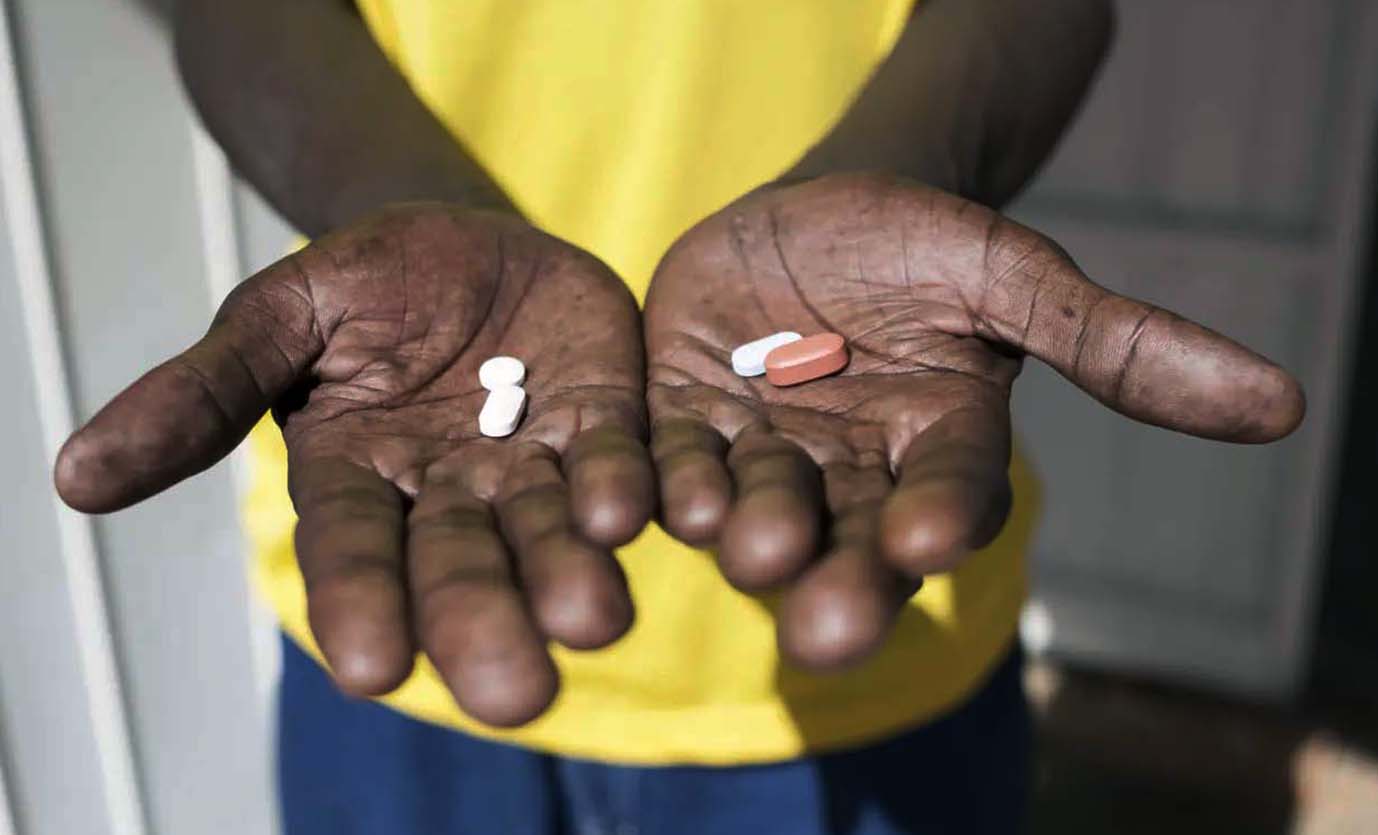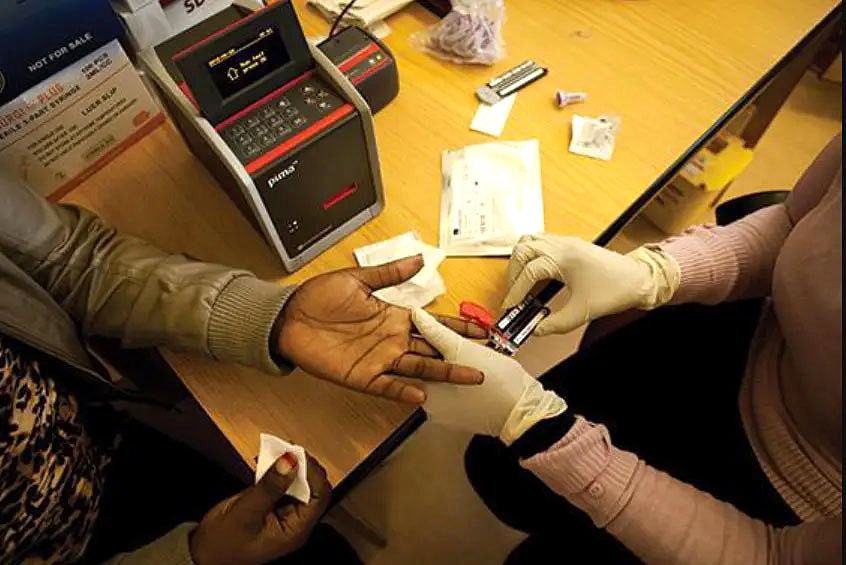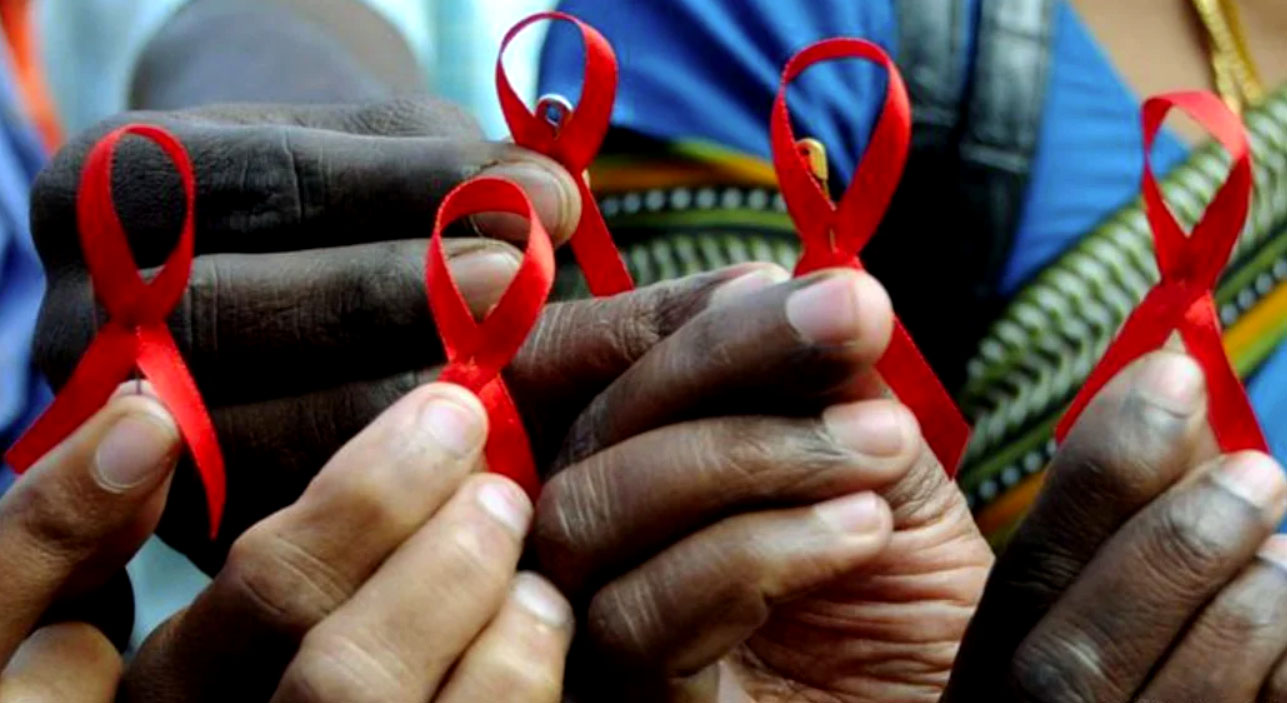Like many countries, South Africa has a shortage of healthcare workers, particularly doctors. One response to this is task-shifting – to let doctors focus on the things only they can do and shift some other less-specialised tasks to other healthcare workers such as nurses or pharmacists.
Task-shifting can take many forms. Earlier this year, Spotlight reported on a court case that gave the green light to specially trained pharmacists to dispense antiretroviral treatment without a script (the judgment is being appealed). Similarly, taking pressure off public-sector clinics, the Department of Health has for several years allowed some people to pick up their medicines at participating private-sector pharmacies or other pick-up points. Less well-implemented was the introduction of clinical associates in 2008 as a new type of mid-level healthcare worker who can take some pressure off doctors and stand in for them in some situations.
Probably the most impactful example of task-shifting in South Africa, however, was the introduction of Nurse Initiated and Managed Antiretroviral Treatment (Nimart) in 2010.
What is Nimart?
Dr Silingene Ngcobo, a lecturer in the School of Nursing and Public Health at the University of KwaZulu-Natal and a board member of the Southern African HIV Clinicians Society, says Nimart is a clinical management programme for people living with HIV which is driven by registered nurses. This means the nurses can independently manage a person living with HIV, starting from screening and diagnosis, all the way to treating and monitoring throughout the HIV care continuum in the absence of a medical doctor.
 Nurse Initiated and Managed Antiretroviral treatment, introduced in 2010, is a clinical management programme for people living with HIV which is driven by registered nurses. (Photo: Rosetta Msimango / Spotlight)
Nurse Initiated and Managed Antiretroviral treatment, introduced in 2010, is a clinical management programme for people living with HIV which is driven by registered nurses. (Photo: Rosetta Msimango / Spotlight)
As explained by Mmotsi Moloi, training programme manager at the Aurum Institute (an NGO), before the introduction of Nimart, only doctors were authorised to prescribe antiretroviral therapy.
The roll-out of antiretrovirals in South Africa technically started in 2004, but it only gathered momentum after the end of state-backed Aids denialism in 2008. It soon became clear that South Africa would not have enough doctors to handle the demand for HIV treatment and nurses would have to be roped in.
“The waiting lists became long, and the doctors could not meet the increasing demand of clients in need of antiretroviral treatment. This led to the death of clients while waiting to be initiated,” says Moloi. “There was an urgent need to remedy the situation which was to decentralise management of HIV to primary healthcare facilities and professional nurses to be trained and authorised to manage HIV-infected clients.”
Ngcobo says nurses are often the only healthcare providers available to provide HIV prevention, care and treatment services. She says the South African healthcare delivery system approach has changed from hospital-centred care to promotion of health and prevention of disease through primary healthcare, and the introduction of Nimart fits this shift.
Hard to quantify
According to estimates from Thembisa, the leading mathematical model of HIV in the country, the number of people taking HIV treatment in South Africa increased from 1.2 million in 2010 to 5.7 million in 2022. How big a part Nimart played in this remarkable scale-up of treatment is hard to quantify, but that it played a pivotal role seems clear.
 When the roll-out of ARVs gained momentum, doctors were unable to cope with the demand. In response, Nurse Initiated and Managed Antiretroviral Treatment was created. (Photo: Spotlight)
When the roll-out of ARVs gained momentum, doctors were unable to cope with the demand. In response, Nurse Initiated and Managed Antiretroviral Treatment was created. (Photo: Spotlight)
A review study published in 2021, which looked at 10 years of Nimart in South Africa, found that adequate Nimart training “results in improved knowledge of HIV management, greater confidence and clinical competence, particularly if accompanied by mentoring”.
The review summarised results from several smaller studies of Nimart conducted in different provinces, which show, on a small scale at least, what potential impact it has had. Among other things, the training of nurses to initiate and manage HIV treatment led to feelings of empowerment, and when coupled with appropriate training and support could “lead to increased quality of patient care, confidence and professional development”.
Studies done in Johannesburg cited by the review found that Nimart training increased access to HIV treatment, reduced workloads at referral facilities, and reduced referrals to tertiary hospitals. Nurses also saw an “improvement in the quality of life of their patients and the retention of patients in care, which they felt reflected the success of Nimart”.
When asked how many Nimart-qualified nurses we have in the country, Health Department spokesperson Foster Mohale says he can’t provide an exact number since they no longer collect data on Nimart because it has been incorporated into broader HIV training. He adds that provinces are the custodians of data for all trained healthcare workers and that the numbers change all the time owing to attrition.
What Nimart nurses do
Ngcobo says Nimart nurses assess and screen people living with HIV for treatment eligibility, initiate antiretroviral therapy, provide adherence counselling and monitoring, screen for opportunistic infections, offer various preventative therapies, psychological support as well as appropriate referrals to other members of the disciplinary team, and oversee repeat visits throughout the healthcare user’s life while managing any other health condition they might have.
Nurses also have to support people with tuberculosis and noncommunicable diseases (such as diabetes and hypertension) to take treatment as prescribed.
“For effective management of other diseases, Nimart nurses should actually work with all other conditions because a person living with HIV still can get various other conditions which still need to be managed. Therefore, the role of [the] Nimart nurse is to holistically manage the patient and provide all the necessary healthcare services that the healthcare user in front of them will be requiring,” says Ngcobo.
 Nimart nurses are able to, among other things, assess and screen people living with HIV for treatment eligibility, initiate antiretroviral therapy, screen for opportunistic infections, as well as provide adherence counselling and monitoring. (Photo: Samantha Reinders / MSF / Spotlight)
Nimart nurses are able to, among other things, assess and screen people living with HIV for treatment eligibility, initiate antiretroviral therapy, screen for opportunistic infections, as well as provide adherence counselling and monitoring. (Photo: Samantha Reinders / MSF / Spotlight)
Training requirements
The Nimart programme has changed somewhat since its launch. Mohale says it now also covers the majority of healthcare professionals such as medical doctors, pharmacists, registered or professional nurses and other healthcare professionals who are authorised by their statutory bodies to assess, diagnose, prescribe and dispense medications. In 2017, Nimart was changed to “Basic HIV for Health Care Professionals”, but the name Nimart is still in wide use.
The essence of the programme, however, remains that a professional nurse, or other qualifying healthcare professional, must complete special training (see this online course for example) before they are authorised to prescribe HIV treatment and manage the treatment and care of people living with HIV. Training typically requires an exam and practical work, ideally with a mentor.
All prescribing by nurses in the public sector relies on section 56(6) of the Nursing Act, which allows an exception to the Medicines Act and other health-related laws, explains Andy Gray, a senior lecturer in pharmaceutical sciences at the University of KwaZulu-Natal. “They therefore do not need section 22A(15) permits or section 22C(1)(a) dispensing licences in terms of the Medicines Act.”
The legalities of how nurse prescribing works in South Africa is set out in a 2016 policy document issued by the Department of Health. Among other things the document says “a nurse may only perform the functions authorised by section 56(6) in public-sector facilities in the district or municipality where the authorisation was granted to him/her”. In other words, nurses who move to jobs at other facilities or in other districts will often require new authorisation before they may prescribe medicines such as antiretrovirals.
Some concerns
But there are signs that training and mentorship are not functioning optimally across the board.
“There is non-standardised training and inadequate mentoring as the country doesn’t have enough trainers,” says Mohale. “There are human resource constraints for both trainers and nurses to be trained. Some districts rely on their district support partners to carry out training on their behalf.
Read more in Daily Maverick: Amid budget constraints, tough choices lie ahead for SA’s HIV response
“Staff shortage from the facilities also leads to some nurses not being able to be trained due to demand for other health services at their service delivery points. Some challenges include failure to identify and manage drug-drug and drug-food interactions which are important in making sure that the patients are suppressing their viral loads.”
Mohale’s comments echo several barriers to the success of Nimart that were identified in the 2021 review study, including “non-standardised training, inadequate mentoring, human resource constraints, health system challenges, lack of support and empowerment, and challenges with legislation, policy and guidelines”. DM
This article was produced by Spotlight – in-depth, public interest health journalism.





 Nurse Initiated and Managed Antiretroviral treatment (NIMART) nurses are able to, among other things, assess and screen people living with HIV for treatment eligibility, initiate antiretroviral therapy, screen for opportunistic infections, as well as provide adherence counselling and monitoring.
(Photo: Samantha Reinders / MSF / Spotlight)
Nurse Initiated and Managed Antiretroviral treatment (NIMART) nurses are able to, among other things, assess and screen people living with HIV for treatment eligibility, initiate antiretroviral therapy, screen for opportunistic infections, as well as provide adherence counselling and monitoring.
(Photo: Samantha Reinders / MSF / Spotlight)